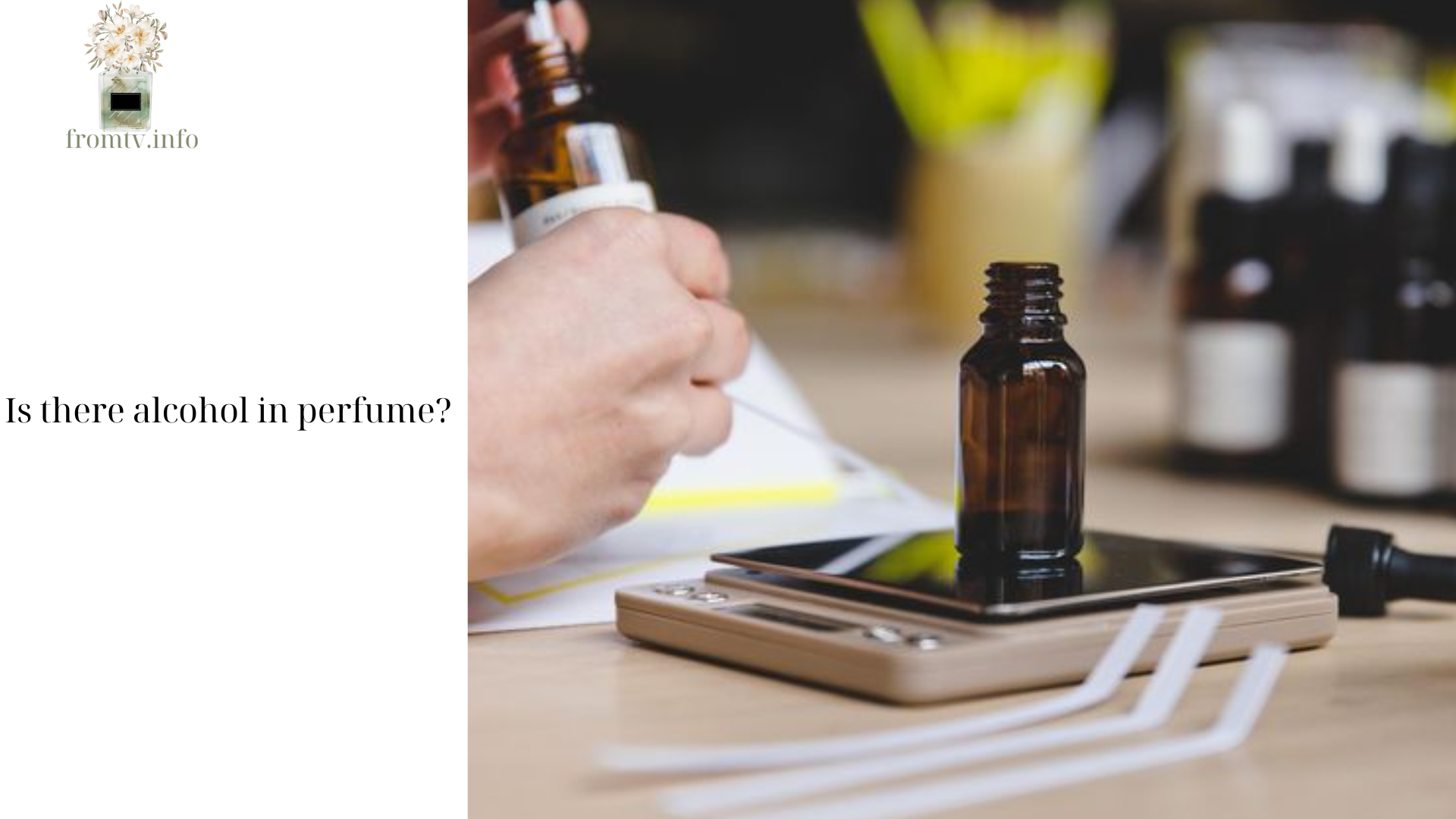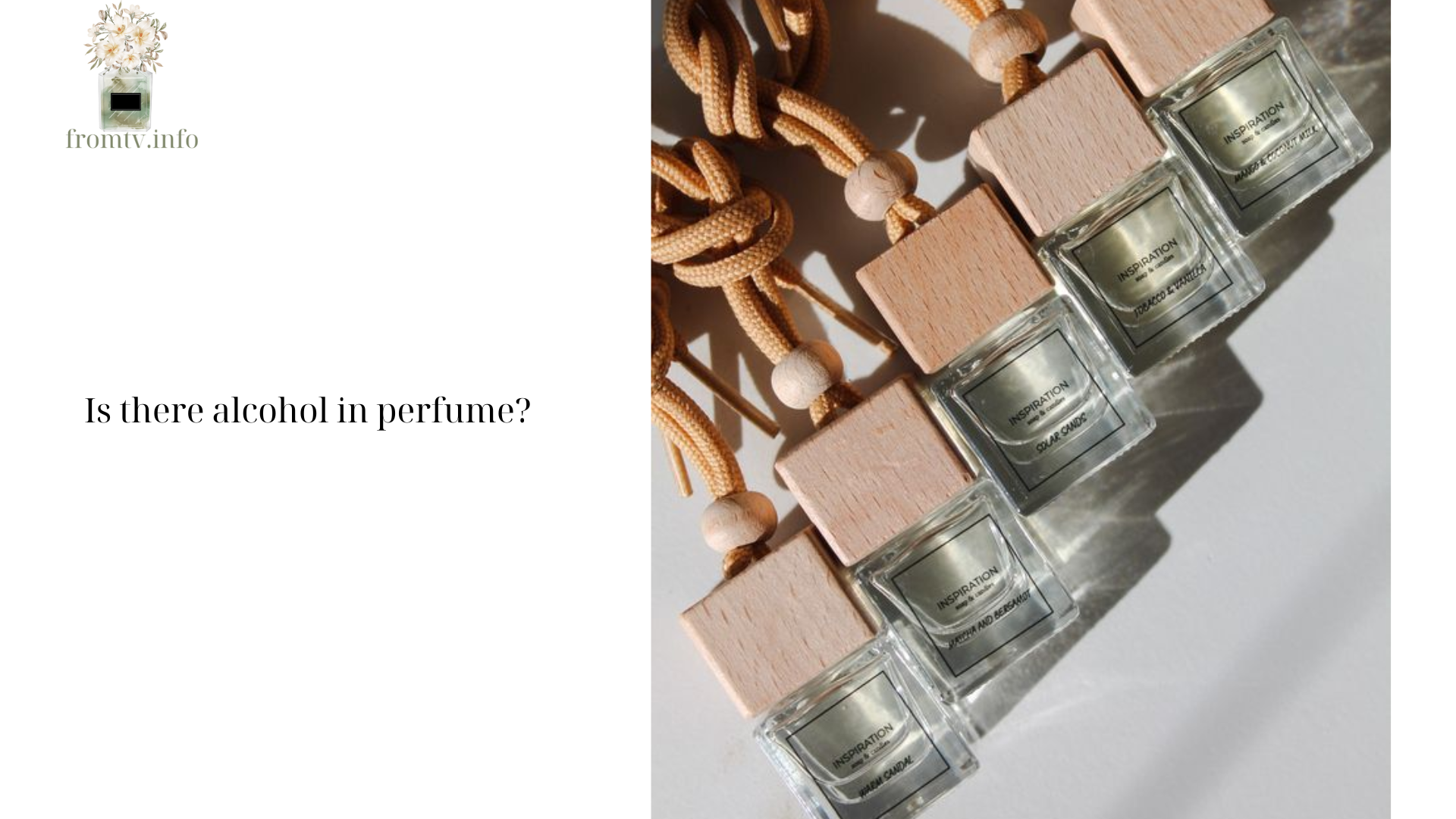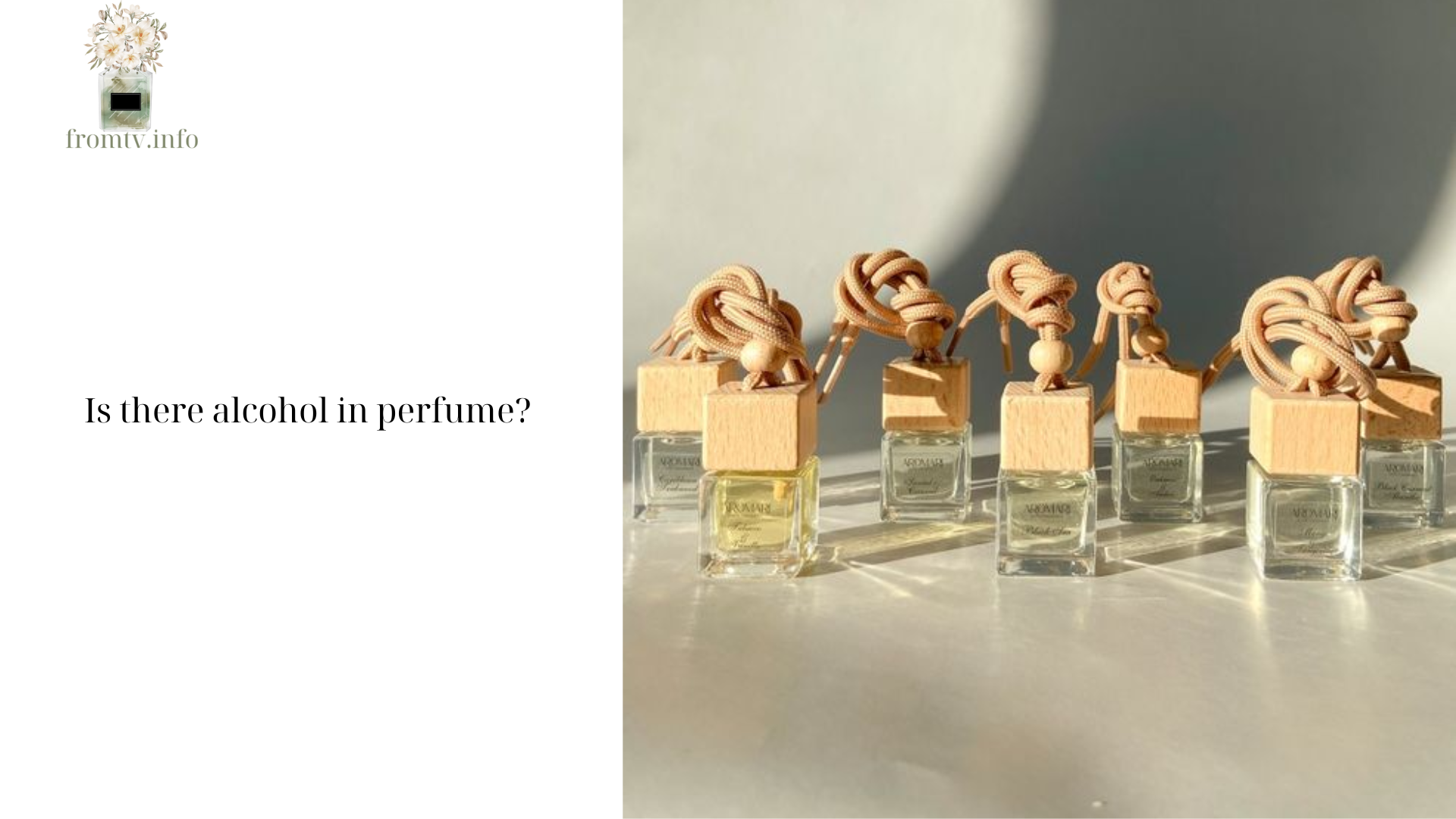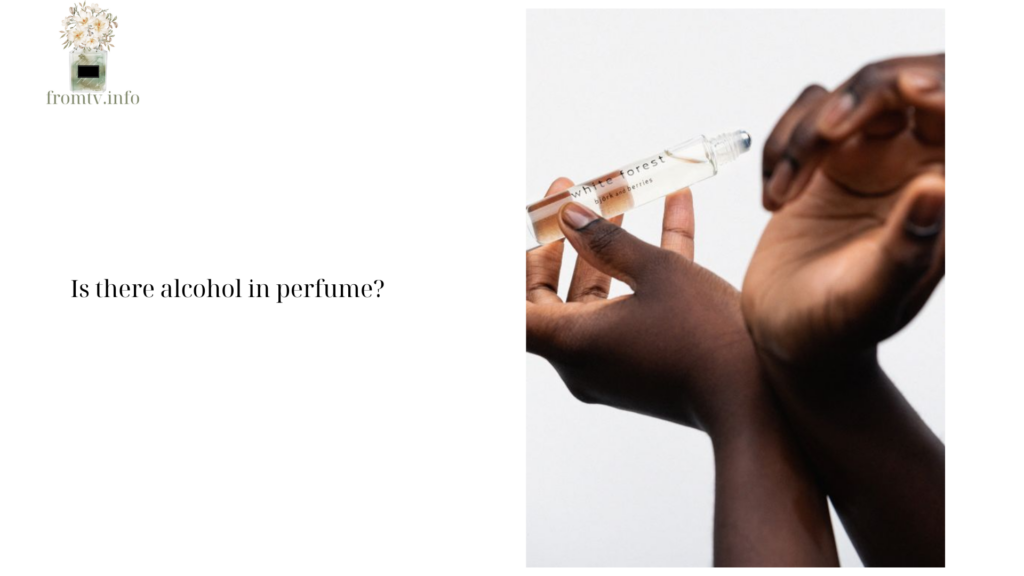Perfume is an essential part of personal grooming for many people, adding a touch of elegance and personality to their everyday lives. However, a common question arises when discussing the components of perfume: “Is there alcohol in perfume?” Fromtv will explore the role of alcohol in perfume, why it is used, the types of alcohol found in perfumes, and the benefits and drawbacks of its presence.
Table of Contents
ToggleIs There Alcohol in Perfume? A Comprehensive Guide

To fully grasp why alcohol is used in perfumes, it’s important to understand the basic composition of a perfume. A typical perfume is made up of three main components:
- Fragrance Oils: These are the essential oils or aromatic compounds that provide the scent.
- Solvent: This helps to dilute the fragrance oils, making them suitable for application on the skin.
- Fixatives: These help to stabilize the fragrance, ensuring it lasts longer on the skin.
Among these components, the solvent plays a critical role, and this is where alcohol comes into play.
Types of Alcohol Used in Perfumes
There are different types of alcohol that can be used in perfumes, each serving a specific purpose:
Ethanol
- Common Usage: Ethanol, also known as ethyl alcohol, is the most commonly used alcohol in perfumes. It is a clear, colorless liquid with a light fragrance.
- Properties: Ethanol is a great solvent for essential oils and aromatic compounds. It evaporates quickly, leaving the fragrance on the skin without any residue.
- Benefits: Ethanol enhances the diffusion of the perfume, allowing the scent to be more noticeable and long-lasting.
Isopropyl Alcohol
- Common Usage: Isopropyl alcohol is less commonly used in perfumes but can still be found in some formulations, especially in lower-end or synthetic perfumes.
- Properties: Similar to ethanol, it is an effective solvent and evaporates quickly.
- Drawbacks: It has a stronger, less pleasant odor compared to ethanol and can be more drying to the skin.
Denatured Alcohol
- Common Usage: Denatured alcohol is ethanol that has been treated with additives to make it undrinkable. This is commonly used in perfumes to avoid beverage taxes and regulations.
- Properties: It has the same solvent properties as ethanol.
- Drawbacks: The additives used in denatured alcohol can sometimes affect the scent of the perfume and may cause skin irritation in sensitive individuals.
Why Is Alcohol Used in Perfume?

Solvent Properties
- Dissolving Fragrance Oils: Alcohol is an excellent solvent for dissolving essential oils and aromatic compounds. This allows the fragrance to be evenly distributed throughout the perfume mixture.
- Enhancing Diffusion: Alcohol helps the perfume molecules spread into the air more effectively, enhancing the diffusion of the scent. This is why perfumes with alcohol tend to have a stronger sillage (the scent trail left behind by the wearer).
Evaporation
- Quick Evaporation: One of the key characteristics of alcohol is its ability to evaporate quickly. When you apply perfume to your skin, the alcohol evaporates, leaving behind the concentrated fragrance oils. This evaporation process also helps to project the scent into the air.
- No Residue: Because alcohol evaporates completely, it leaves no residue on the skin, ensuring that the perfume feels light and non-greasy.
Preservation
- Antimicrobial Properties: Alcohol has natural antimicrobial properties, which help to preserve the perfume and extend its shelf life. This is particularly important for preventing the growth of bacteria and fungi in the perfume bottle.
- Stabilization: Alcohol also helps to stabilize the fragrance, ensuring that the scent remains consistent over time.
Benefits of Alcohol in Perfume
Longevity
- Enhanced Sillage: As mentioned earlier, alcohol helps to project the scent, creating a stronger and more noticeable fragrance. This is especially beneficial for those who want their perfume to be noticed by others.
- Long-Lasting: Perfumes with alcohol tend to last longer on the skin compared to oil-based perfumes. The quick evaporation of alcohol leaves behind a concentrated scent that lingers.
Versatility
- Layering: Alcohol-based perfumes are versatile and can be layered with other scented products, such as body lotions or shower gels, to create a more complex and personalized fragrance.
- Application: The light, non-greasy feel of alcohol-based perfumes makes them easy to apply and comfortable to wear, even in hot and humid climates.
Drawbacks of Alcohol in Perfume

Skin Sensitivity
- Drying Effect: Alcohol can be drying to the skin, especially for those with sensitive or dry skin types. Repeated use of alcohol-based perfumes can lead to irritation and dryness.
- Irritation: Some individuals may experience skin irritation or allergic reactions to the alcohol or other ingredients in the perfume. It’s important to do a patch test before applying a new perfume to a large area of the skin.
Scent Alteration
- Initial Sharpness: The initial application of an alcohol-based perfume can have a sharp, strong scent due to the alcohol. This usually dissipates quickly as the alcohol evaporates, leaving the true fragrance behind.
- Additives: In the case of denatured alcohol, the additives used to render the alcohol undrinkable can sometimes alter the scent of the perfume.
Alternatives to Alcohol-Based Perfumes
For those who prefer to avoid alcohol in their perfumes, there are alternatives available:
Oil-Based Perfumes
- Carrier Oils: These perfumes use carrier oils such as jojoba oil, coconut oil, or almond oil as a base. They are gentler on the skin and provide a long-lasting fragrance.
- Application: Oil-based perfumes are applied directly to the skin and often come in roll-on or dropper bottles.
Water-Based Perfumes
- Hydrosols: Water-based perfumes, also known as hydrosols, use water as the primary solvent. They are typically lighter and more refreshing but may not last as long as alcohol-based perfumes.
- Gentle: These perfumes are ideal for those with sensitive skin or those who prefer a lighter scent.
Conclusion
In summary, alcohol plays a crucial role in the formulation of many perfumes. It acts as an effective solvent, enhances the diffusion and longevity of the scent, and helps preserve the fragrance. While there are some drawbacks, such as potential skin irritation and the drying effect, the benefits often outweigh these concerns for many users.
Understanding the role of alcohol in perfumes allows you to make informed decisions about your fragrance choices. Whether you prefer the strong sillage and long-lasting nature of alcohol-based perfumes or opt for the gentler alternatives of oil or water-based perfumes, there is a wide range of options available to suit your preferences and needs.
By considering your skin type, fragrance preferences, and any sensitivities, you can find the perfect perfume that not only smells divine but also feels great on your skin.
Related Posts:
- How to Extract Perfume with a Syringe: A Comprehensive Guide
- How to Use Roll-On Perfume: A Step-by-Step Guide for…
- Charme Women’s Perfume Smells the Most Fragrant: A…
- How is Singaporean Perfume Different from American…
- How to Dilute Perfume: A Comprehensive Guide
- How to Apply Perfume Properly: A Comprehensive Guide

